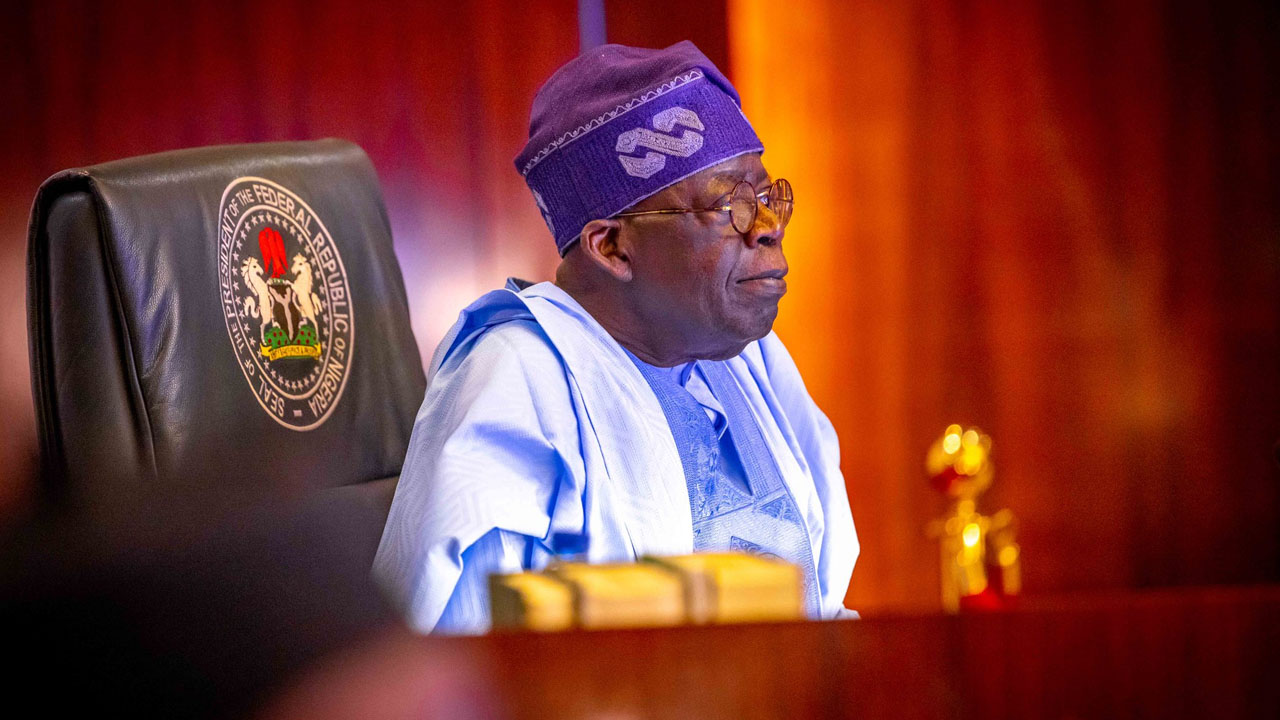...
As GenCos raise alarm over liquidity crisis...

Nigerians demand full probe as $2.96bn scandal rocks NNPCLBy Seun IbiyemiPresident Bola Tinubu is expected to hold direct talks with the leadership of Nigeria’s power Generation Companies (GenCos), following urgent deliberations between the Federal Government and key electricity producers over the N4 trillion debt threatening to destabilise the sector.This was disclosed by the Minister of Power, Adebayo Adelabu, after a high-level meeting with executives of the GenCos in Abuja.
Adelabu assured them of the government’s readiness to address the liquidity crisis, starting with a significant upfront cash payment.According to the minister, the Federal Government will immediately disburse a large portion of the outstanding debt in cash, while the remaining balance will be settled through financial instruments such as promissory notes, to be cleared within the next six months.“There is a need to pay a significant amount of the debt in cash.
At the minimum, let us pay a substantial amount, then use debt instruments like promissory notes for the rest,” Adelabu explained.He said President Tinubu would meet directly with GenCos leadership to accelerate the resolution process, noting, “We recognise the urgency of this matter. The government is committed to resolving this debt to stabilise the sector and prevent further crisis.
”During the meeting, GenCos raised serious concerns over the liquidity crisis that has pushed the sector to the verge of collapse. The delegation, led by Sani Bello, Chairman of Mainstream Energy Solutions and the Association of Power Generating Companies (APGC), said the debt had crippled their capacity to access credit or maintain vital infrastructure.“Without urgent intervention, the entire power ecosystem could collapse,” Bello warned.
Kola Adesina, Chairman of Egbin Power and First Independent Power Limited, described the situation as a national emergency.“Everything hinges on power, industries, homes, hospitals. We cannot afford to let the sector fail,” he stated.
Adelabu acknowledged the multiple structural challenges plaguing the electricity industry, including chronic defaults on payments, persistent gas supply issues, and the volatility of foreign exchange rates. He reiterated the government’s intention to reform the sector by removing operational bottlenecks and fully liberalising the power market.The minister also urged citizens to accept cost-reflective electricity tariffs, noting that the government would only offer targeted subsidies to protect low-income households.
“Citizens must pay the appropriate price for the energy they consume. Our economy cannot sustain subsidies indefinitely,” he stated.The Chief Executive Officer of the APGC, Joy Ogaji, offered a sobering insight into the sector’s financial strain, pointing out how the naira’s devaluation, from ¦ 157 to ¦ 1,600 against the dollar between 2013 and now, had severely impacted the GenCos’ ability to service loans and maintain equipment.
Meanwhile, Nigeria’s oil sector is engulfed in another corruption scandal as investigations continue into the alleged mismanagement of over $2.9 billion earmarked for refinery rehabilitation.The Economic and Financial Crimes Commission (EFCC) has already apprehended several former top executives of the Port Harcourt, Warri, and Kaduna refineries over suspected financial misconduct related to the multi-billion dollar projects.
Among those arrested are Ibrahim Onoja, the former Managing Director of the Port Harcourt Refining Company, and Efifia Chu, the former head of Warri Refining and Petrochemical Company.The investigation is focused on the disbursement of $1.56 billion to the Port Harcourt refinery, $740 million to Kaduna, and $656 million to Warri.
Economic analyst Alex Nnaemeka urged anti-graft bodies like the EFCC and the Independent Corrupt Practices and Other Related Offences Commission (ICPC) to pursue the matter rigorously. He stressed the importance of identifying collaborators still in active service and removing them to cleanse the Nigerian National Petroleum Company Limited (NNPCL).“This is a matter of national importance.
All suspects must be taken into custody. Hopefully they cooperate, and if found guilty, they must face the consequences,” he said.Nnaemeka also questioned the allocation of oil revenues, pointing out the stark contrast between the impoverishment of oil-producing communities in the Niger Delta and the alleged diversion of funds to officials from other regions.
An industry insider described the unfolding situation as more than just troubling, calling it a damning reflection of systemic dysfunction within Nigeria’s oil sector.According to the expert, the funds under probe could have funded at least two new modular refineries with cutting-edge technology and higher production efficiency.He further criticised the discovery of N80 billion in a personal account linked to one of the suspects, calling it a glaring example of internal control breakdown and failed regulation.
The expert dismissed previous government claims that refineries were operating at 70 percent capacity, calling such announcements a form of political theatre. Staff and field reports indicate that the facilities remain largely non-operational.He noted that the Warri and Port Harcourt refineries lack catalytic reforming units, which are essential for producing Premium Motor Spirit (PMS), thereby rendering the plants structurally incapable of effective output.
Another economic commentator, Godwin Ekpe, also questioned the rationale behind attempting to revive ageing refineries without first restoring the crude oil supply pipelines needed to feed them.“Without functional pipelines like the Escravos-to-Kaduna line, these facilities were never going to be viable,” he argued.Ekpe said the government should have prioritised building smaller, modular refineries tailored to Nigeria’s current energy demands.
He also called for a critical review of the role played by the NNPCL and its former Group Chief Executive Officer, Mele Kyari, accusing them of financial mismanagement, manipulation of public narratives, and lack of transparency.He urged the Federal Government to commission a forensic audit, not only of the funds but also of the procurement process, the contractors involved, and all recorded project milestones.Public affairs analyst Ekweribe Odo added that looming strike threats by refinery support staff further underscore the governance failures surrounding the rehabilitation effort.
He said the government’s inability to meet basic commitments to its workforce reflects a deeper crisis in stakeholder management.Odo concluded that even if the refineries were technically restored, their sustainability would remain in doubt without genuine structural reform. He described the scandal as symptomatic of a broader failure of leadership, ethical accountability, and strategic foresight.
As investigations continue, analysts are unanimous in calling for not only the prosecution of those involved but also urgent and far-reaching reforms to rescue one of Nigeria’s most critical economic sectors.The post FG meets GenCos to clear N4trn debt, avert power sector collapse appeared first on Nigerian NewsDirect..
Business

FG meets GenCos to clear N4trn debt, avert power sector collapse

...As GenCos raise alarm over liquidity crisis ...Nigerians demand full probe as $2.96bn scandal rocks NNPCL By Seun Ibiyemi President Bola Tinubu is expected to hold direct talks with the leadership of Nigeria’s power Generation Companies (GenCos), following urgent deliberations between the Federal Government and key electricity producers over the N4 trillion debt threatening to [...]The post FG meets GenCos to clear N4trn debt, avert power sector collapse appeared first on Nigerian NewsDirect.















